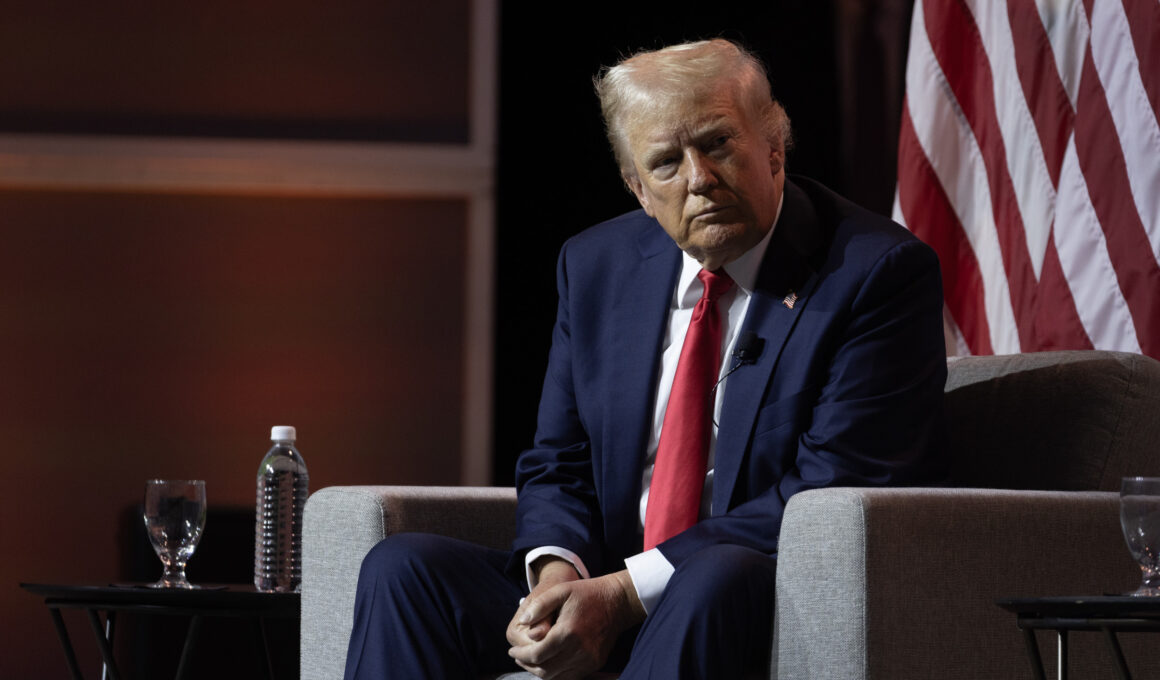Former President Donald Trump has already been stung by several legal setbacks this month.
Trump, while facing a stiff presidential election challenge from the Democratic campaign of Vice President Kamala Harris, received two legal blows in 48 hours: On Saturday, a new hearing was scheduled in his federal election subversion case, and on Monday, the U.S. Supreme Court refused to cancel a sentencing hearing for his 34 felony convictions in New York.
Jenna Ellis, Trump’s former lawyer, also on Monday became a cooperating witness in Arizona’s election subversion case that could spell further legal trouble for the former president down the road, although he has not been indicted in the case.
The developments arrived after Trump enjoyed a series of recent legal wins, including the Supreme Court partially siding with him on presidential immunity and Trump-appointed U.S. District Judge Aileen Cannon dismissing his federal election subversion case in Florida.
Newsweek reached out for comment to Trump’s office via email on Monday.
Here’s a more in-depth look at the court setbacks endured by Trump during the first week of August.
Federal Election Subversion Case
U.S. District Judge Tanya Chutkan, overseeing Trump’s federal election case, on Saturday denied the former president’s motion to dismiss all charges in the case on the grounds of presidential immunity.
While a trial will almost certainly not take place before the November election, Chutkan scheduled a new hearing in the case for August 16.
Trump was indicted in August 2023, charged in efforts to overturn President Joe Biden‘s 2020 election win and in the January 6, 2021, attack on the U.S. Capitol that followed.
The former president is charged with conspiracy to defraud the United States, conspiracy to obstruct an official proceeding, obstructing and attempting to obstruct an official proceeding and conspiracy against rights.
Sentencing for New York Convictions
Trump was convicted in May on 34 felony counts of attempting to illegally manipulate the outcome of the 2016 presidential election, which he won, by falsifying business records to conceal potentially damaging “hush money” payments to porn star Stormy Daniels.
While sentencing in the case had originally been scheduled to take place in July, New York State Supreme Court Justice Juan Merchan postponed the proceedings until September 18 amid uncertainty regarding the effect that the Supreme Court’s immunity ruling might have on the case.
Missouri sued to call off the sentencing, with state Republican Attorney General Andrew Bailey arguing that sentencing occurring before the election, as well as Trump’s still-active gag order in the case, infringed on the rights of Missouri voters.
The Supreme Court on Monday ruled against Missouri, allowing the sentencing hearing to move forward and killing Bailey’s lawsuit. Conservative Justices Samuel Alito and Clarence Thomas said that they would have allowed the suit to continue.
Jenna Ellis Cooperating in Arizona
Ellis, who was part of the Trump legal team that unsuccessfully tried to reverse the 2020 election outcome, was indicted in April alongside 17 other former Trump associates on charges of conspiring to overturn Arizona’s election results in favor of the former president using “fake electors.”
Arizona Attorney General Kris Mayes announced on Monday that Ellis had signed an agreement to “testify completely and truthfully at any time and any place requested” on the same day, calling it “a significant step forward in our case.”
While Trump has not been indicted in Arizona, a legal expert previously told Newsweek that the former president would “most likely” be charged if another defendant agreed to testify against him as part of a plea deal.








